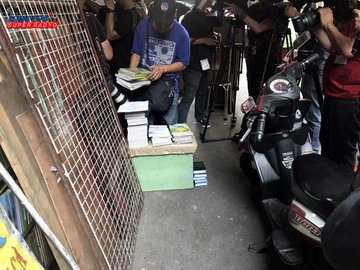With piracy on the increase and determined efforts being made throughout the arts and entertainment world to eliminate the threat to its well-being by illegal operators and operations, a focus has fallen on people and organisations in support services whose role when legitimate is positive but destructive when based on illegitimacy.
The scourge of piracy is one that poses a massive threat to the existence of the international arts and entertainment sector, because the people behind piracy and illegal services provide no positive financial or moral input into the sector and could bring the sector to its knees if not controlled or eliminated.
“Piracy makes no contribution to arts and entertainment sector and is a drain on resources that should be channeled into legitimate chains of action and supply so that the sector is adequately remunerated and funded,” said Liz Dziva, publicity and public relations manager of MultiChoice Zimbabwe, which represents the DStv brand in this territory.
“We have to continuously identify where illegal operations are taking place, assess the negative impact these are having on legitimate businesses and then create a means to eliminate such illegal activity.”
One part of this large problem comes from people and businesses that claim to be agents for the DStv brand or installers of equipment needed to obtain the DStv service.
“We have a national network of authorised agents, whose role is to provide support to existing and new subscribers with important services such as reconnections, opening new accounts, product changes and clearing error codes,” said Ms Dziva.
“There is a total number of 54 agents across Zimbabwe and MultiChoice Zimbabwe provides an up-to-date list of these authorised agents and this list can be obtained from MultiChoice branches in Joina City, in Harare’s city centre, at Avondale, in Bulawayo and in Mutare, as well online at www.dstv.com or through its national telecall centre.
“If an agent is not authorised, we at MultiChoice cannot verify that the service to be obtained will be successful and of the right quality, nor can we guarantee that connection to the DStv service will happen at all or it may well be erratic, and the service may possibly even be illegally sourced. And with illegal business activity, all parties end up being guilty of involvement, even the customer.”
The same ethic applies to the 117 authorised DStv installers, whose role is to provide the technical services related to installation. These are registered by MultiChoice Zimbabwe if they have met the strictly-controlled requirements that are deemed necessary to ensure customers have services that are of the right standard. Installers must have sufficient installation tools, and they have to have passed an assessment exam.
“By using accredited installers, customers are guaranteed of receiving quality installations using the correct equipment such as the 90-cm dish, A-grade cable and LNBs and other technical equipment. Such installations scheduled and completed by an installer are quality assured by MultiChoice Zimbabwe,” said Ms Dziva,
“Accredited installers now use an application to capture and record all work done on site, known as an Installer Ecosystem, and they use state of the art installation tools.
The Installer Eco-system is a MultiChoice Africa-originated and web-based application used for installer certification, installation scheduling, quality assurance and obtaining feedback concerning installations from customers.
“In a world where illegal operators thrive and sometimes get what they want, we have to be on the alert, mainly because the inevitable result of taking services from these people is a bad experience, often an expensive one, too, and that is not what we want for our customers,” said Ms Dziva.
“And our system of agents and installers is good for the country, too, as we foster employment and legitimate operations that in turn benefit the economy.”






